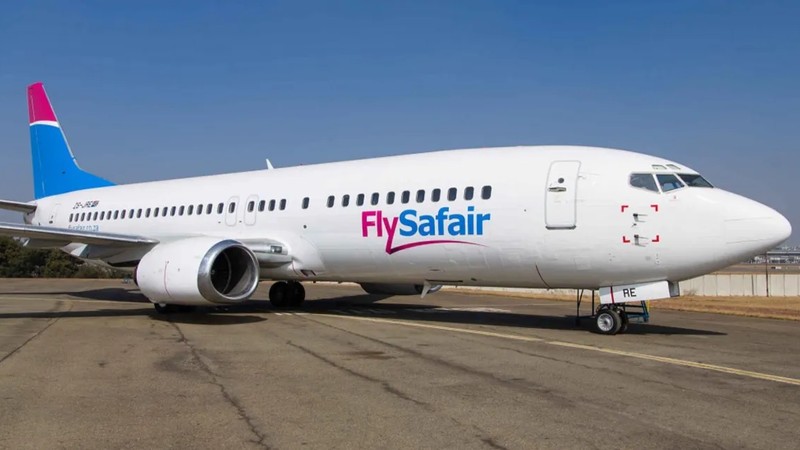FlySafair will apply to the Commission for Conciliation, Mediation and Arbitration (CCMA) for a Section 150 intervention to expedite the resolution of a labour dispute, after members of the South African Cabin Crew Association (SACCA) were locked out on Monday following failed negotiations.
FlySafair confirms that the employer-initiated work stoppage commenced at midnight on Tuesday night, with no disruption to flights on Tuesday. The airline has secured full operational coverage over the upcoming roster cycle and remains confident that all services will continue as scheduled.
Currently, more than two-thirds of FlySafair’s cabin attendants are committed to work, comprising both non-union members and union-affiliated crew who have formally accepted the company’s offer. Combined with the seasonally reduced November schedule, this allows the airline to fully protect its operations, FlySafair said.
In an interview on 702 on Monday morning, FlySafair marketing manager Kirby Gordon said that while, in theory, the industrial action could go on indefinitely, the airline would appeal to the CCMA as it offered what qualified for an essential service, as the statute allows.
“The other thing is to make application through the CCMA for a Section 150 process. That’s a specific process that the CCMA allows for instances where there is industrial action at institutions that have a high public interest — almost being something close to an essential service in aviation. We make that application to say: ‘CCMA, you have been involved and so helpful thus far in terms of the process; please come back and assist us to get this over the line with some certainty and some urgency,’” Gordon said.
Section 150 empowers the CCMA to appoint a commissioner to try and resolve a dispute through conciliation, even if it has not been reported to the CCMA. This can happen with the consent of the parties or if the director believes it is in the public interest, without their consent.
He said the impact of the industrial action would be minimal, as the airline had shaved down its operational schedule for November significantly for planned maintenance ahead of the peak December season.
“We have got a couple of aircraft that have been taken out of line for flying for the month to ensure they are fully equipped and work particularly hard in the high season for December. Between the reduced schedule, the commitment we have from existing staff, and the fact that we have an extra staff complement in anticipation of the December period, it’s quite a good opportunity for us to protect the roster,” Gordon said.
He said the latest industrial action, coming on the back of the strike by pilots earlier in the year, had an impact on the airline, which had become a victim of its own success, as the labour unions demanded more than they ordinarily would.
“The opportunity exists for the unions to say, well, if we take this to the level of industrial action, we don’t just take on the airline as an individual company — we are actually holding the flying public to ransom as well, particularly in the year we have the G20 and so on. If we were plying 10% of the market, they would be okay with us. When we sit on 66% of the domestic market, suddenly the problem that FlySafair faces is a national problem — and I think they see that power,” Gordon said.
The SACCA, which said it was making it unequivocally clear that its members have not embarked on a strike accused FlySafair of acting in bad faith, stating that it prematurely declared a dispute with the CCMA in direct violation of the recognition agreement.
“Even before the process concluded, FlySafair was already preparing for industrial action by recruiting scab workers, bypassing proper recruitment and training procedures, and reducing its flight schedule — not as a seasonal adjustment but as a calculated move to undermine negotiations. Out of 182 scheduled flights, 70 were cancelled, representing a 38.46% reduction in operations — clear evidence that the company anticipated disruption and acted accordingly,” SACCA said.
It disputed the airline’s claims that flight operations were normal, stating that FlySafair has drastically reduced its schedule and that the cabin crew currently operating flights are inexperienced, inadequately trained temporary workers hired at a fraction of the standard pay to replace qualified, licensed crew.
“The outstanding issue preventing resolution remains the company’s refusal to compensate employees for their legally entitled lunch hour. Instead, crew are expected to work through it without rest — and are even instructed not to be seen eating on board, despite the lack of proper facilities or time to do so,” SACCA said.
BUSINESS REPORT
